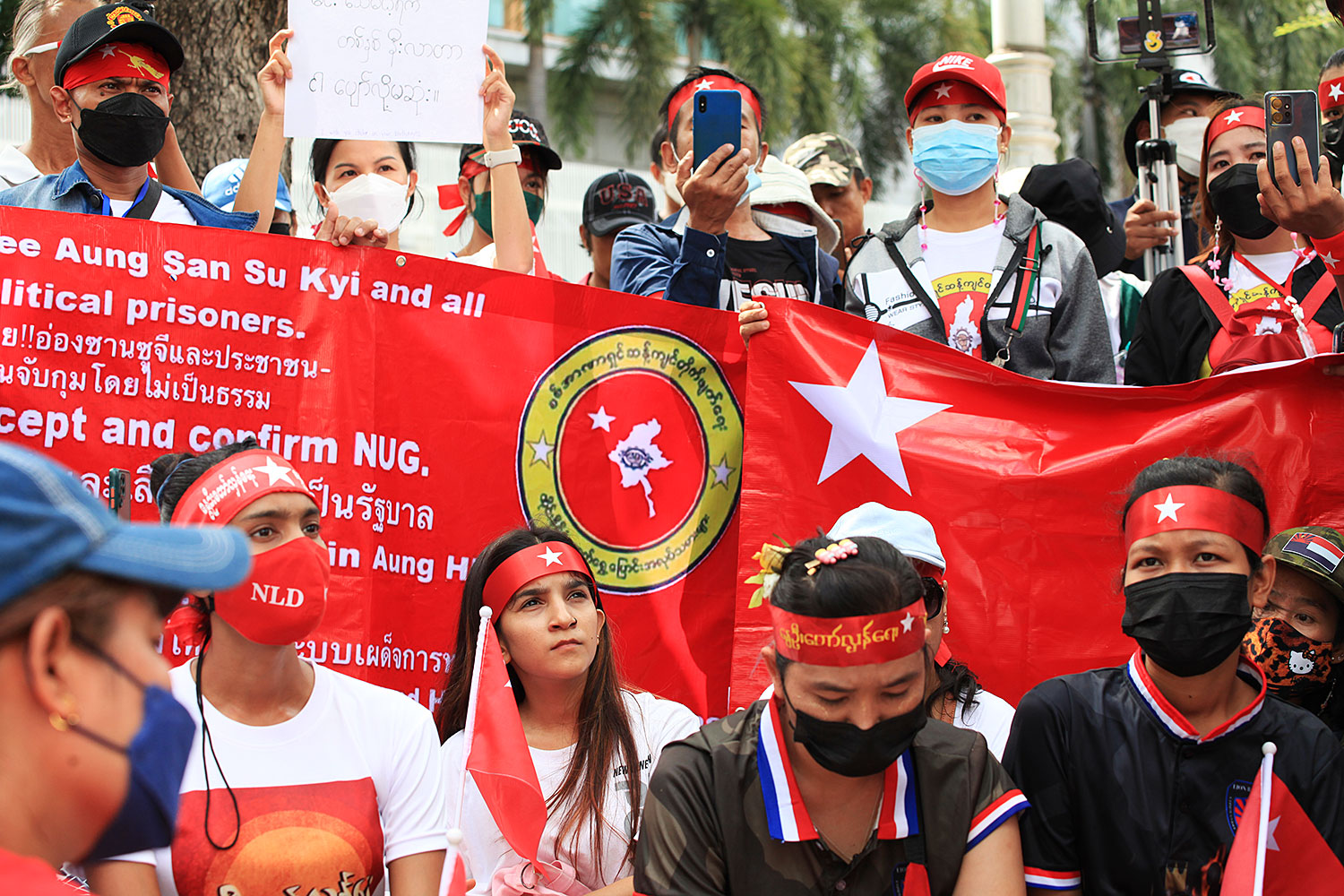
Thailand must play a greater mediative role in the Myanmar crisis, starting with the Asean meeting.
Thailand has long been regarded as a key pillar of stability within the Asean community. As the Asean summit winds up, it is imperative the new prime minister, Srettha Thavisin, leverages his attendance to reposition Thailand's regional foreign policy on Myanmar.
The crisis unfolding there is tragic and requires urgent action.
The UN human rights office says at least 3,000 civilians have been killed, and more than 17,500 detained and over a million displaced as the Tatmadaw pursues its brutal crackdown to retain power.
More than 5,000 refugees from Myanmar are now taking shelter at refugee camps in the Mae Sariang district of Mae Hong Son, Thailand, where humanitarian aid is provided.
One of the writers of this article (Tidarat Yingcharoen) is a second-generation Burmese Lahu immigrant and has a personal connection to the plight of the people in Myanmar.
Ms Tidarat's own family's journey, escaping the poverty and injustice of Myanmar's Shan State decades ago, is a testament to Thailand's transformative role in the lives of many refugees displaced by the atrocities and destitution in Myanmar.
As a leading economy within Asean with access to the government in Myanmar, Thailand has a role to play in restoring democratic peace and stability in Myanmar.
Yet Thailand's responsibilities must not be discharged unilaterally.
The two-person meeting between Thailand's erstwhile foreign minister Don Pramudwinai and Myanmar's former leader and the de-registered National League for Democracy leader Aung San Suu Kyi, three days before the official Asean Foreign Ministers' Meeting on July 11-12, undid significant efforts by Asean in brokering a tenable modus vivendi.
The meeting risked legitimising Myanmar's military regime and is inappropriate, for it clearly falls outside the Asean Five-Point Consensus, as determined by Asean states in 2021, in response to the military coup in the country.
Indeed, the Malaysian foreign minister has stressed that efforts to resolve humanitarian and domestic instability should not be taken unilaterally.
At the Asean Foreign Ministers' Meeting, the Asean chair asked Asean members to reaffirm Asean's unity in tackling Myanmar issues.
Mr Srettha has pledged to make Thailand a regionally potent and peace-upholding nation committed to democratic principles.
With Thailand's significance as a front-line country, it must exercise its influence on Myanmar issues carefully and precisely.
Thailand's role in the region is not only about economic prosperity but also about fostering peace and stability.
By leveraging its influence within Asean and adhering to the principles of collective action, Thailand can contribute significantly to resolving the Myanmar crisis and strengthening regional unity.
Given the above, we believe the Asean Summit in Indonesia, scheduled to finish today, is a pivotal opportunity for the new civilian-led government to advance its leadership role within the Asean framework.
The timing is crucial as Thailand's involvement in regional cooperation is needed for national economic development and its role as a leader in regional peace.
Conflict resolution is a key pillar of its soft power and bargaining capital vis-a-vis both China and the US.
The Asean Summit's agenda also covers several critical issues, including the Asean Digital Economy Agreement (DEA), which aims to boost digital trade in the region by up to US $600 billion (21 trillion baht) by 2030.
Additionally, a strategy for carbon neutrality has been formulated to promote a green economy and sustainable growth.
Accelerating the implementation of economic initiatives like the Regional Comprehensive Economic Partnership (RCEP) and the Asean Trade in Goods Agreement (e-Form D) is also on the table.
Furthermore, plans for a Post-2025 Vision for Asean integration are being discussed, aiming to create a seamless single market and production base within the region.
Additionally, whilst the Asean Summit is crucial, it is important to note that Mr Srettha will attend the United Nations General Assembly's 78th Ordinary Session on Sept 18-23. This session will include discussions on vital parallel forums such as the SDG Summit, high-level meetings on health, and the Climate Ambition Summit.
Thailand can seize the opportunity to highlight its strengths and enduring comparative advantages as a regional champion of sustainable and digital infrastructural development.
The time has come for Thailand to reinforce its position as a leader in regional peace and conflict resolution. The Asean summit and the UN General Assembly provide exceptional opportunities for this.
Our stepping up to the challenges of peace brokering will benefit the Asean community and ensure Thailand's continued growth and prosperity within the region.
Tidarat Yingcharoen is a Thai-Myanmar academic, educator and politician who is currently the spokesperson and director of the policy centre for the Thai Sang Thai Party in Thailand. She holds a master of public policy degree from the University of Oxford. Brian Wong is an assistant professor in philosophy at the University of Hong Kong and a Rhodes Scholar and adviser on strategy for the Oxford Global Society.